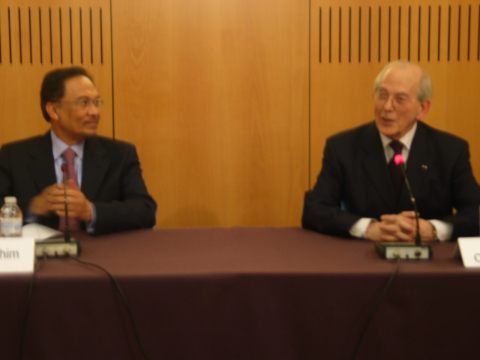
Practical information
Minister of culture in 1983, minister of agriculture in 1984, minister of education in 1986, vice Prime Minister in 1993 (cumulated with the status of Minister for Finance), Anwar Ibrahim leaded the ministry for finances at the time of the Asian economic crisis of 1997. Partisan to follow the recommendations of the IMF, he openly criticized the nepotism and the corruption of the government. Consequently, it was excluded from the government and from the dominant party. In August 2008, Anwar Ibrahim became again MP. The coalition of the opposition parties, of which he is the leader today, holds more than one third of the seats at the Parliament.
Other events

From Ambition to Action: Exploring Technological Partnerships with India
The 16th EU-India Summit, held on January 27th in New Delhi with European leaders António Costa, Ursula von der Leyen, and Prime Minister Narendra Modi, marks a significant milestone in deepening EU-India relations. At the same time, official bilateral visits from EU member states are on the rise, including that of the French President, who visited India in February to participate in the Artificial Intelligence Summit. As India asserts its technological ambitions and seeks to reduce its dependence on China, Europe is stepping up its efforts to diversify its strategic partnerships.

The Enlargement of the European Union: A Strategic Choice? France, the Western Balkans and the EU in an Uncertain Geopolitical Context
Russia’s war against Ukraine has brought the enlargement of the European Union back to the centre of European strategic debates. In this context, the Western Balkans have regained heightened visibility in discussions on the continent’s security, at a time when the international environment is marked by a growing number of destabilising factors.






